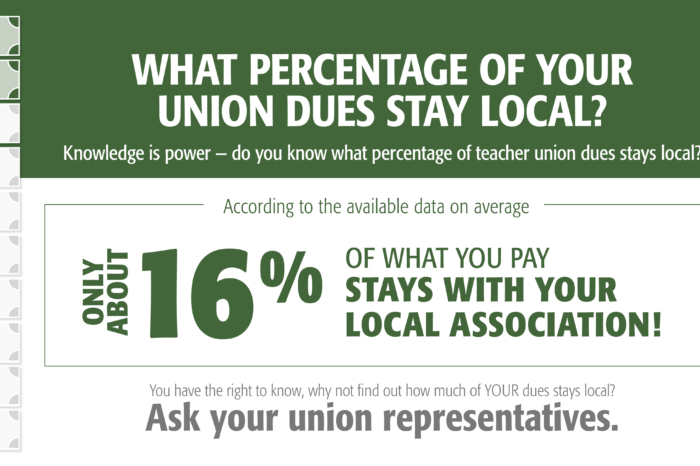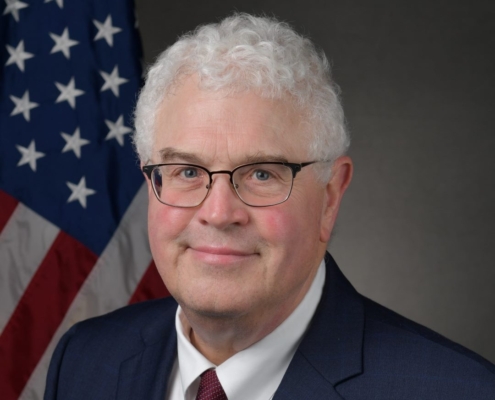Study Finds Vast Majority of Teacher Union Dues Fund State and National Affiliates
Local MTA affiliates that conduct collective bargaining negotiations retain average of just 16 percent of dues revenue
BOSTON – Just 16 percent of dues paid by the average member of a union affiliated with the Massachusetts Teachers Association (MTA) actually goes to their local association, while the remaining 84 percent flows to the state (MTA) and national (National Education Association) organizations, according to a new policy brief published by Pioneer Institute.
“While collective bargaining negotiations, the primary benefit the union provides, occur at the local association level, the majority of dues are sent to the state and national unions,” said Rebekah Paxton, author of “Where Do Teacher Union Dues Go?” “If only 16 percent of annual dues are retained at the local level, it appears that most dues revenue funds state and national administrative salaries and activities to increase the unions’ political influence.”
The study surveyed only the 19 local MTA and NEA affiliates that make dues information publicly available.
Map key: Yellow: more than 20% of total dues goes to local union, Orange: 15-20% of dues goes to local union, Red: less than 15% of total dues goes to local union
Annual union dues range from $700 to $900 for Massachusetts educators. Dues amounts vary by local union organization, but are the same regardless of member pay grades.
The annual amount paid to local associations ranges from $60 for membership in the Lee Education Association to $225 for the Barnstable Teachers Association. Such amounts are in addition to the dues required for membership in the MTA, which were $494 for 2018, and $192 for 2018 membership in the NEA. Members pay the total annual dues to their local union, which then sends the respective dues amounts to the MTA and NEA.
The study comes in the wake of the U.S. Supreme Court’s June decision in Janus v. AFSCME, where the Court ruled that teachers who choose not to join their union can’t be forced to pay an “agency fee” that covers the cost of collective bargaining.
“Current union members and potential future members deserve to know where their dues are going, and what they fund,” said Pioneer Executive Director Jim Stergios. “If teachers are to make informed decisions about whether to join a union, local and county associations should follow the MTA and NEA and make union dues information publicly available.”
About the Author
Rebekah Paxton is a Research Assistant at Pioneer Institute. She first joined Pioneer in 2017 as a Roger Perry intern, writing about government transparency and higher education within the Commonwealth. Since then, she has worked on various research projects under PioneerPublic and PioneerOpportunity, in areas of state finance, public policy, and labor relations. She recently earned an M.A. in Political Science and a B.A. in Political Science and Economics, from Boston University, where she graduated summa cum laude.
About Pioneer
Pioneer Institute is an independent, non-partisan, privately funded research organization that seeks to improve the quality of life in Massachusetts through civic discourse and intellectually rigorous, data-driven public policy solutions based on free market principles, individual liberty and responsibility, and the ideal of effective, limited and accountable government.
Receive important updates about our work:
Related Posts









